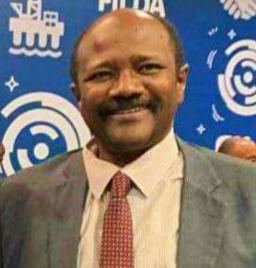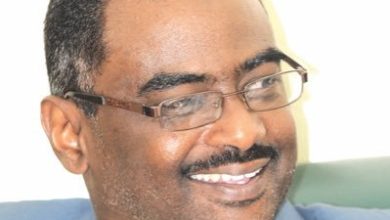Opinion
Abdullah Al-Tayyib in the Eyes of Mohammed Al-Makki Ibrahim Mastery in Linguistics and a Mind Rich in Knowledge

By: Mohammed Al-Makki Ibrahim
Selected by: Dr. Khalid Mohammed Farah
I missed the anniversary of this great man, and this article lay hidden among my papers. Now that I’ve found it, it must come to light in honor of the memory of that giant.
The Passing of the Last of Sudan’s Generation of Giants: Abdullah Al-Tayyib, a Master of Linguistics and a Mind Overflowing with Knowledge
He battled illness for nearly two years. News of his improving health would reach his admirers from the Sudanese diaspora scattered across the globe, filling them with hope for his recovery. This hope was inspired by his strong will, physical vitality, and his dedication to swimming, in which he excelled despite his advanced age. But in the end, death prevailed, and we lost Professor Abdullah Al-Tayyib—one of the brightest stars of Sudan’s generation of giants who emerged at the dawn of independence. They shone like meteors in the fields of politics, law, medicine, administration, education, and literature, achieving levels of excellence that were once thought unattainable for a nation emerging from the yoke of colonialism.
Perhaps it was the colonial administration itself that drove them to such excellence. As a generation, they were determined to prove the Sudanese worthy of freedom, independence, and self-rule. They saw their professional and academic achievements as contributions to the liberation of their homeland.
Abdullah Al-Tayyib was born into one of Sudan’s most esteemed families. His lineage, the Majazeeb, was renowned for its piety, virtue, and the dissemination of religious knowledge. They had countless followers in northern Sudan as well as in the east. Among their spiritual adherents was the legendary military commander Osman Digna, who fought the British in eastern Sudan, breaking through their fortified military formations. His prowess even drew admiration from Rudyard Kipling, the poet of the British Empire, who wrote of Digna’s warriors in one of his poems.
Abdullah Al-Tayyib hailed from a line of poets, including both men and women, who specialized in praising the Prophet Muhammad (PBUH). He once mentioned that his father, too, was a poet and had left behind a notebook filled with his handwritten verses. Unfortunately, this notebook was lost in a travel mishap in 1934.
A Mind Like a Vault
From an early age, Abdullah Al-Tayyib exhibited extraordinary intelligence and a prodigious memory, which allowed him to internalize vast amounts of knowledge. This capability remained with him until a stroke impaired him two years before his death. His remarkable memory manifested in many ways, including his ability to recall and resume conversations or lectures with precise continuity. He could pick up exactly where he left off, no matter how intricate the topic, be it language, literature, or Quranic exegesis.
First and foremost, Abdullah Al-Tayyib was a distinguished linguist, a poet second, and an expert in Quranic recitation and interpretation third. He was also a playwright, a memoirist, and one of the earliest Sudanese contributors to descriptive sociology. Though a master of Arabic linguistics, he was equally proficient in English and knowledgeable in French, which surprised many. Once, he attended a lecture in French on legal topics, sitting discreetly at the back, demonstrating his advanced comprehension.
His lectures at the Faculty of Arts were a magnet for students from other faculties and even members of the public eager to absorb his vast knowledge. His public talks were so popular that venues would overflow with attendees. One particularly memorable address was at the 80th birthday celebration of Yusuf Badri, the founder of the Ahfad educational institutions. Abdullah Al-Tayyib captivated the audience, moving them to laughter and tears in equal measure.
A Pioneer in Language and Literature
Abdullah Al-Tayyib’s mastery of Arabic dialects and their roots in classical Arabic earned him widespread admiration. His ability to trace Sudanese dialects back to their classical origins was a source of pride for many Sudanese, reinforcing their cultural and linguistic ties to the Arab world.
Though he took pride in his Arab heritage, recognition from the Arab world came late. He eventually received the prestigious King Faisal International Prize for Arabic Literature, a testament to his unparalleled contributions. His linguistic expertise, coupled with his knowledge of Western languages, set him apart from his contemporaries, allowing him to approach comparative linguistics with both depth and breadth.
In his own words, he once remarked, “Having studied numerous Arabic and English literary works, I’ve concluded that Arabic poetry stands unparalleled. Even Shakespeare’s poetry cannot compare.”
A Legacy of Experimentation and Tradition
Though Abdullah Al-Tayyib was rooted in classical Arabic traditions, he was open to experimentation. For a brief period, he explored free verse poetry but quickly distanced himself from the movement, declining any association with the pioneers of modern Arabic poetry. His experiments, however, sought to expand the horizons of Arabic verse without abandoning its classical foundations.
In his lifetime, Abdullah Al-Tayyib left behind a treasure trove of literary works, including poetry that evolved in its sophistication over time. His later works stand as shining examples of Sudanese classical poetry, enriched with humor and wit, in contrast to the often somber tone of free verse.
A Man of Wit and Depth
Abdullah Al-Tayyib possessed a sharp sense of humor, often delivering his witticisms with a straight face, which only amplified their comedic effect. His unique blend of intellectual rigor and lightheartedness made him a cherished presence in any gathering.
He also left an indelible mark on his students, peers, and admirers. His passing was a profound loss—not just of a man but of a treasure trove of knowledge and culture.
“Nothing remains of Sudan’s golden days. Perhaps the Sudanese diaspora will be the seeds (‘tirab’) of a new Sudan,” he once said. Abdullah Al-Tayyib was a seed of brilliance and wisdom—a light extinguished too soon.
May peace be upon you among the immortal, O descendant of the noble and the pure.


